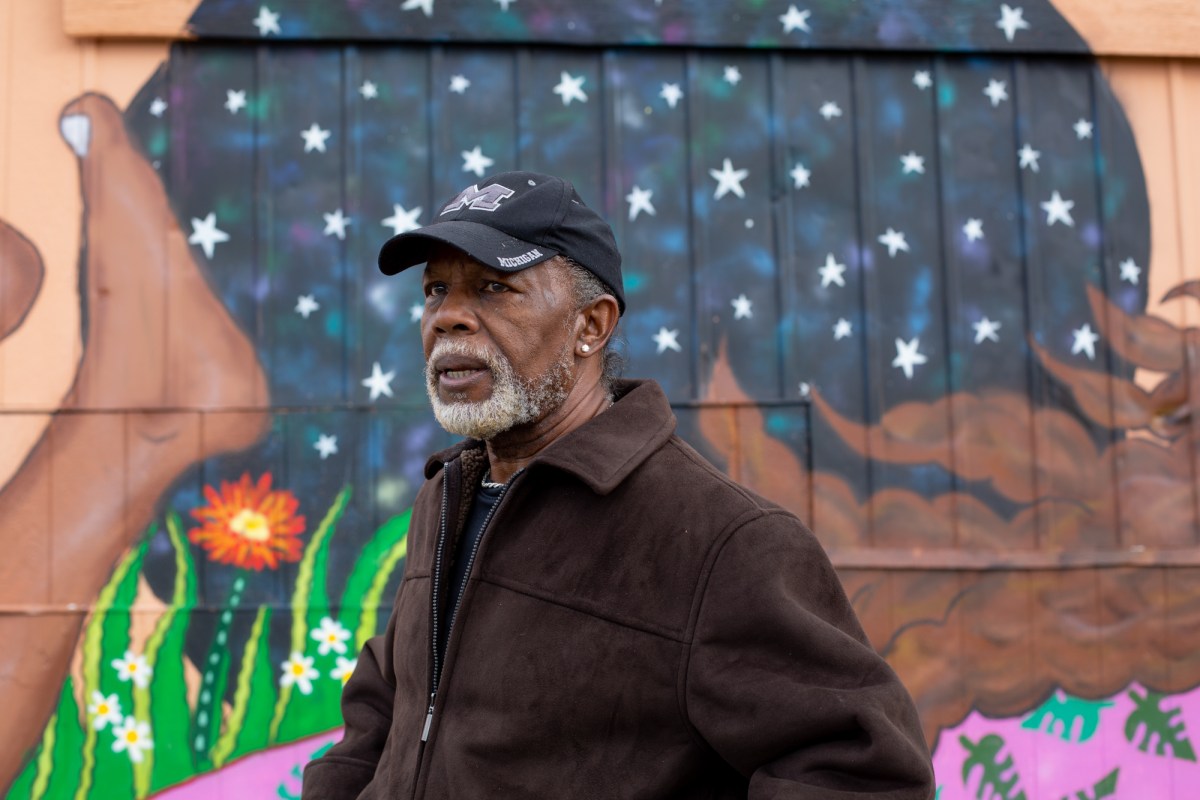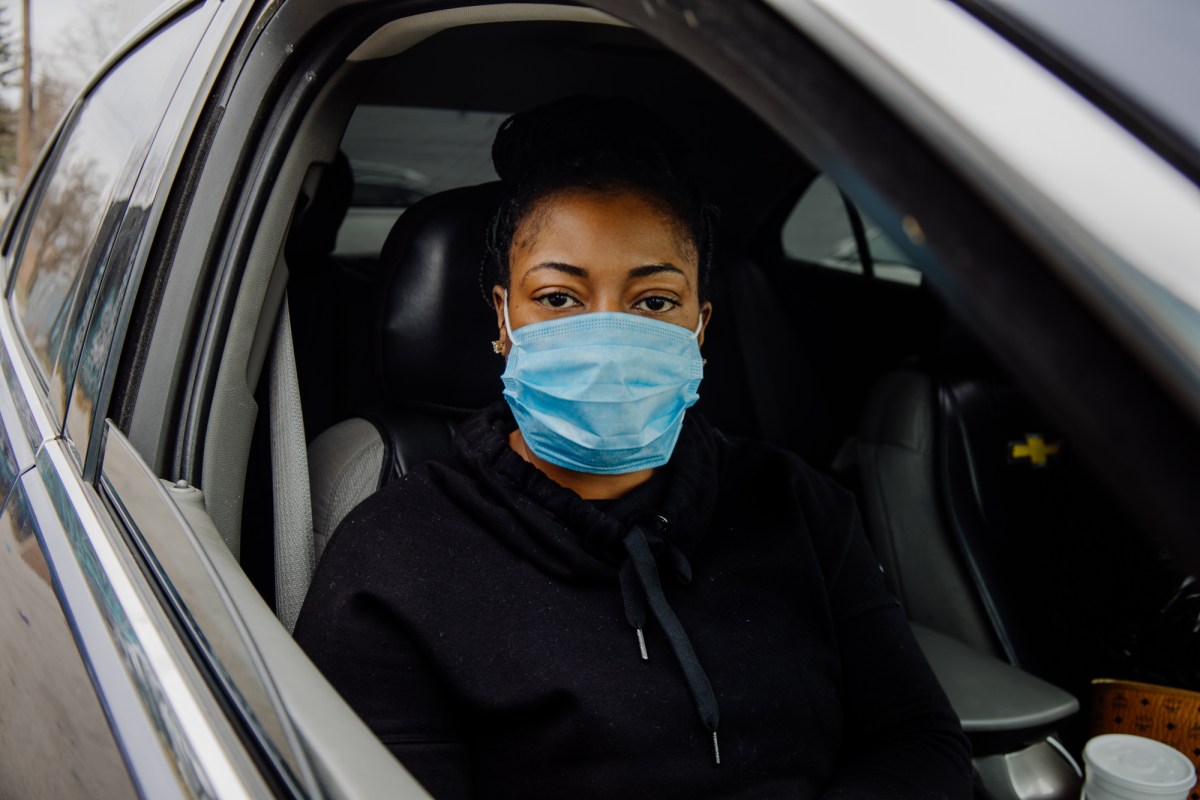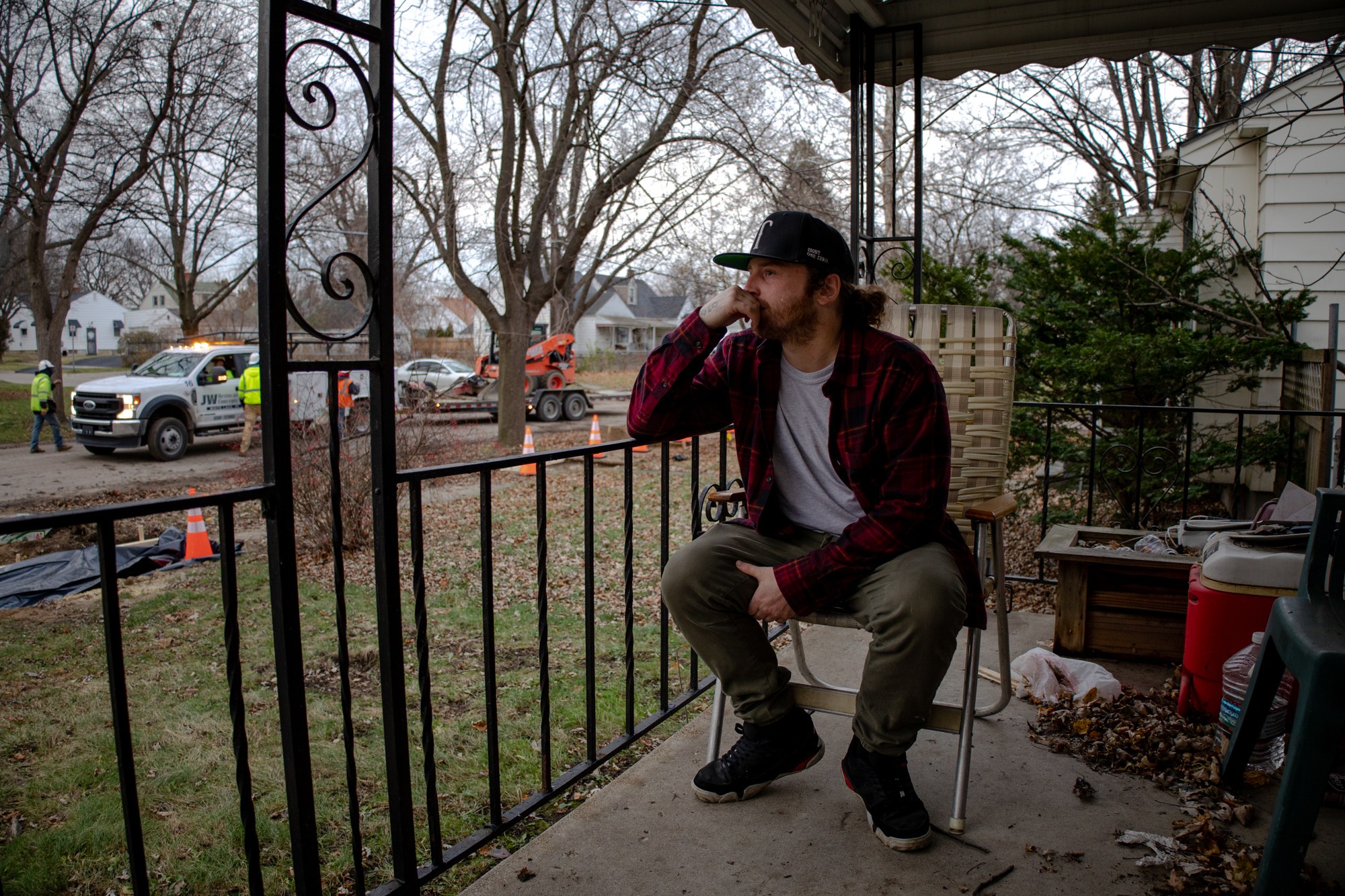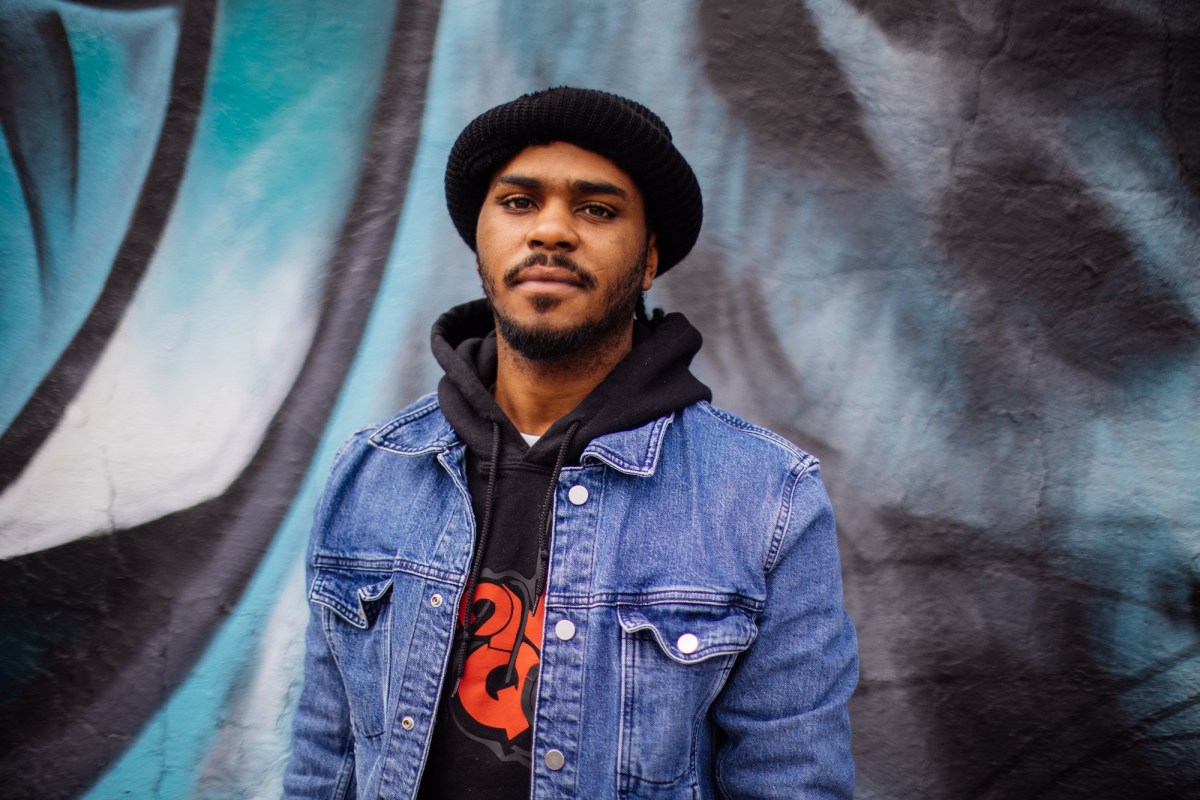
By
Flint, MI– Lorraine Taylor remembers when she first started having to fit bottled water into her already tight $20 weekly grocery budget.
She remembered thinking about how blessed she was to have a car so she could drive to the grocery store. She purposely didn’t take water from the free giveaways– she wanted to make sure her neighbors who couldn’t drive or afford to buy bottled water were the ones who got it.
Taylor remembers her perfectly healthy one-year-old cat suddenly becoming very ill, and the chalky water in her coffee pot that first raised her suspicions.
Six years later and living in Montrose, Taylor still doesn’t drink the water. She has what she calls a “healthy skepticism” of the government, and like many Flint residents, she has a hard time imagining that any sum of money would bring true justice to Flint.
But $641.25 million, the current settlement amount, for many, does not even come close.
“It’s so horrible, so wide-ranging, and it affects everything,” Taylor said of the water crisis. “There’s no way to put a dollar amount on it, for everyone to be whole again.”
In August, the state of Michigan offered a settlement of $600 million. They were then joined by McLaren Regional Medical Center, Rowe Professional Services, and the City of Flint itself, adding another $41.25 million dollars. City Council will vote to approve or reject the city’s $20 million contribution to the settlement on Dec. 14.
Still, residents weighed in on the settlement and what they thought could be done to help.
Education
Ryanesha Swims has three kids, ages 1, 5, and 11. She said her 5-year-old who was born during the crisis, has suffered the most.

Ryanesha Swims, 32, has three kids who were differently affected by the Flint water crisis. Her middle child who is now 5 years old, was most affected by the water, and suffers from learning disabilities. “They just basically put us to the side, felt like that money is something, and it’s nothing, it’s nothing. It’s not gonna compare to us kids not knowing things in the end and we wonder why our kids are so behind, it’s the water.” she said. (KT Kanazawich | Flint Beat)
“She can’t learn in school as she’s supposed to,” Swims said.
She doesn’t think anything could be enough to fix that.
“These kids are gonna suffer from learning disabilities. There’s nothing y’all can do really to compensate us for that,” Swims said. “Money’s not everything when your kids get older and they wanna have a family but their insides are messed up.”
Local doctor and activist Dr. Kent Key said free college education for Flint residents and the descendants of people who were poisoned is one thing that could help.
“It’s scientifically documented that the youth are impacted by this through behavior issues, and then we also see a lack of academic performance,” said Key, executive deputy director for Community Based Organization Partners and faculty at Michigan State University’s College of Human Medicine. “We need a buffer…so those kids who may become challenged still have support to go through the academic process.”
Additionally, Flint resident and Assistant Program Manager at UM-Flint’s Center for Economic Development Nic Custer said he would like to see an erasure of all deficits for Flint schools.
“The $20 million deficit from 2014 is still 5.7, as of last year, for 3700 kids, which means 10 schools have been closed, and that the district really can’t even function in any real way,” he said.
Healthcare
Jovan Lynell, a 22-year-old activist, said she feels like Flint is “a city full of undiagnosed mental illness.”
“We’ve got gun violence, chemical warfare, poverty…it’s a compounding of trauma. We’re not crazy,” she said. “We deserve a big ass building full of counselors, full of ways to help. We need resources. We need investment.”
Key said Flint residents deserve free universal healthcare for physical and mental health problems that will impact generations to come.
“When you think about the mental health stress this has put families through…people becoming ill not being able to work, unemployment due to disability, the number of lives lost,” he said. “There’s mental trauma from living through this, and now you’ve got COVID-19 exacerbating this.”
Taylor said she had “severe anxiety.”
“Every facet of your life is affected. You’re constantly fetching water, fitting that in your budget, you had to brush your teeth with it, everything,” she said.
Not to mention all of the physical health problems people now have as a result of the water crisis.
Swims said her children have eczema, and that her baby’s hair fell out after taking a bath at her aunt’s house in Flint.
Councilman Maurice Davis said he knows people who’ve had cancer as a result of the water crisis.
“So many young ladies lost babies prematurely, several people died of legionnaires which has not been documented accurately,” Key said. “And several residents have been diagnosed with upper respiratory issues which makes them more susceptible to COVID-19…settlements are an insult, but anything is better than nothing.”
More money, easier access
Davis called the settlement a “crying shame,” and a “money grab” by the lawyers on the case.
“The attorneys stand to make $213 million. That’s a very good pay day,” he said. “While the residents get nothing.”
It’s possible that the lawyers will get 33.3% of the settlement amount, which could amount to millions per lawyer on the case, but only hundreds or thousands for each Flint resident who makes a claim.

Flint resident Nic Custer on the porch with his recently adopted dog, Emmett. (KT Kanazawich | Flint Beat)
Custer did his own estimations for the settlement and guessed adults might get around $600.
“What does that mean for adults who have continued to push the community forward over the last decade, and will need to, for at least the next 18 years, to kind of help these children survive and maintain their position in the community?” Custer asked.
Custer called the settlement amount “paltry.”
“We’re at a place that already has a 40% poverty rate, a place that already struggles educationally, socially, even just to support local businesses,” he said. “By putting money in the pockets of actual citizens, we can start to have some autonomy and rebuild our community.”
For Flint to see justice, Davis said there would need to be more money, and it would need to go to anyone who was a Flint resident at the time of the water crisis. He said it should be like a stimulus check, rather than an application process that might be less accessible to the poorest people in the community.
Custer said small businesses should also get access to capital.
“There’s a lot of very talented and driven people in this community that are often, due to the way banks are set up, not given the appropriate capital to actually make their dreams come true,” he said.
Infrastructure repairs
Flint resident and artist Travis James has been getting his pipes worked on since September, but he says even once it’s finished, he wouldn’t drink water from the faucet ever again.
“I don’t think money would solve what everyone had to go through,” James said. “We shouldn’t have had to pay for water and we paid for the water the entire time, and the entire time we had to pay for water we couldn’t use.”
James hopes his yard is at least fixed after all the work on the pipes.

Travis James, 29, watches construction workers from his porch on the East Side of Flint as they work to replace pipes in his neighborhood. (KT Kanazawich | Flint Beat)
But it’s more than that.
“Many people did not get their actual infrastructure repaired, because you know, it’s obviously more than just the pipe itself,” Custer said. “It’s systems, it’s washers, it’s health outcomes, both mental and physical for families.”
Taylor remembers people “going through water heaters like crazy.”
Key said something more should be done to help people who suffered from property damage and now have to replace in-home plumbing and appliances.
“When you really break down the money, it’s not a lot when you think about the financial damage and the damage to home properties,” he said.
Law enforcement awareness
Key said law enforcement in Flint will need to have a greater understanding of the effects of lead poisoning on behavior.
He said the data shows that lead poisoning creates a hormonal imbalance that makes it challenging for people to handle stress.
“There needs to be some type of registry between youth and those affected by behavior issues in law enforcement,” he said. “There needs to be something flagged, so say if my 9-year-old drank the water growing up has behavior issues…the cops have to remember the kids had behavior issues because of lead.”
Lynell said “it’s really unfair” the way that people will potentially be punished for behavior that might have been the result of the lead.
She’s also upset about the construction of a new $20 million juvenile detention center in Genesee County.
“That juvenile detention center is going to make money off the fact that they poisoned these kids,” she said. “It’s gonna be bad.”

Shannon Lawler said “People don’t know what’s going on.” Some of his peers have been contacted by lawyers to discuss the settlement for the Flint water crisis, but he has yet to be. He’s inspired to tune into city council and keep up with what’s happening in the city. (KT Kanazawich | Flint Beat)
Flint resident Shannon Lawler said he thought people who end up in the criminal justice system should be rehabilitated.
“The lead does something to your brain…it creates a chemical imbalance in people,” he said. “They should offer treatment, free medication.”
Fighting racism
Another aspect of justice for Flint residents involves acknowledging that racism played a role in the water crisis, and working to dismantle racism.
Key, who drafted the resolution to declare racism a public health crisis in Genesee County, said there needs to be a national movement to do that.
“The Michigan Civil Rights Commission said this was systemic racism and environmental racism. This needs to be addressed at the county, the state and the national level,” he said. “We need to revisit systems that help create conditions where things like the Flint Water Crisis could happen.”
In addition to racism being at the root of the crisis, Councilman Davis said he feels racism is a part of why the settlement took so long and will be so little for individuals.
“If we was a suburb or if we was out in Forest Creek or Grand Blanc, it’d be a totally different treatment,” Davis said. “We get crumbs, we won’t have nothing, and the lawyers will be Black rock stars at the end of the day.”
Catch up on more Flint news on Great Lakes Now:
Officials: Flint makes progress toward ending water crisis
Michigan will borrow $600M for Flint water settlement
How does a $641 million Flint water settlement get to residents? Attorneys give answers
Flint water lawsuit settlement now totals about $641 million
Judge: Flint must check water lines in newer neighborhoods
Court: Flint class-action can proceed over lead in water
This article, first published in Flint Beat, is republished here through Great Lakes Now’s membership in the Institute for Nonprofit News, a network of more than 200 nonprofit newsrooms across the U.S., working to strengthen the sources of trusted news for thousands of diverse communities.
Featured image: Councilman Maurice Davis discusses various issues in the 2nd ward of Flint, in which he represents, such as crime, home repairs, access, and blight. (KT Kanazawich | Flint Beat)




